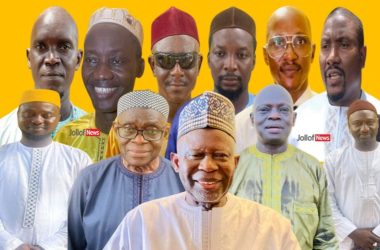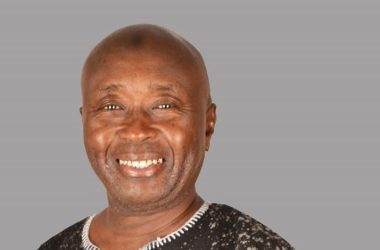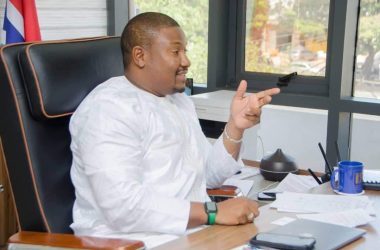
Journalists must never be an” Impotent Observer” but” Potent Observer”
“It’s impossible to carry the torch
of truth through a crowd without
singing somebody’s beard.”
Georg C. Lichtenberg;
Ethics (the term comes from the Greek word ethos: custom or practice) is that branch of philosophy whose purpose is to describe moral sentiment, as well as to establish norms for good and fair behavior. In the context of journalism, this is a question about what is good and what is right journalistically.
The challenge for Gambian journalists today, is to understand the intricate transition underway, and move ahead with as little skills and experience as they have. This is because political freedom has been one of the biggest threats to journalists in The Gambia.
In the fact, the threat to journalists, during the heydays of Yahya Jammeh, is their conscience. The challenge is to decide on what is right and wrong and sometimes, national priorities, might interfere with what ordinarily would be good journalism. Gambian journalists face a crisis of decision, of conscience but they have acquitted themselves well, maintaining high standards set by their predecessors who went to prison, exiled and killed to defend the right to tell the truth.
When it comes to covering politics, journalists often unearth information that the politicians don’t want them to know. Publishing only the information the politician wants made public is little more than being a press officer or a peddler in propaganda.
The real journalist is prepared to risk all to print uncomfortable truths, can back up their stories with undeniable facts and is committed to exposing incompetence, venality, lies and corruption. This, I think, is exactly what Thomas Jefferson meant when he placed such a high value on the role of newspapers (the media) in society.
In doing so, it is crucial that journalists understand themselves and their own motives, and that they subscribe to and apply a set of editorial ethics that ensure that all they do is done with integrity.
The temptation will always be to court, to woo and to befriend the politician. Some journalists might think that by adopting that strategy they are likely to be privy to more information and achieve an advantage over their competition (selling newspapers or winning the air time ratings is also a massive media motivation). But closeness has its dangers.
If a politician is your friend, you may find it difficult to expose them or criticize and write about them in an honest way. So, one important question for political journalists is about the distance they maintain from the politicians they’re writing about, and this distance will vary, depending on the state of the political system.
If you are living in a rotten polity, your duty as a journalist is to expose its rottenness to the public gaze. And please don’t let those who preach ‘constructive’ or ‘positive’ journalism prevent you from doing this. The difficulty about keeping your distance from the politicians is a practical one. How far can you go in your reporting? Can you remain free? Can your newspaper or TV station stay in business? Are you in danger?
In other words, I hold the view that a journalist must never be an “Impotent Observer”. Journalists can be very “potent” and have proved this many times in the exposure of corruption or of human rights abuses among other things. The power of independent journalism manifests core normative roles, namely a monitorial, a facilitative, a radical, and a collaborative role. These roles, are not necessarily mutually exclusive, but do point to different ways in which journalism is positioned in society.
However, journalism has a public purpose in a legal sense. It is to obtain and distribute news about events of public interest, take a position on them, apply criticism to them, and so contribute to shaping public opinion. Through this, journalism takes on an especially meaningful task in democracy, for which it has special rights (the right to refuse to divulge sources; a right to claim information from authorities), but also special duties.
The most important duty is to report fully and correctly, which involves making sure that all news is checked over before it is distributed, with attention paid where necessary to truth, content and background information
In the search for answers to these questions, my assumption is that democracy, though afflicted with many weaknesses, is nevertheless the best form of government. A functioning democracy is founded on a communications sector that functions adequately and allows informed public opinion to develop freely. Therefore, in a democracy, journalists have a special political purpose and responsibility.
Democracy is, above all, a culture of dialogue, in which the opinions of dissenters are respected. For example, the highest German court (the constitutional court, the “Bundesverfassungsgericht”) holds that freedom of the press and freedom of speech are the essential elements of a democratic state, because only the continuous struggle between opinions and constant intellectual debate will safeguard democracy.
In my conviction, responsible journalism presupposes that journalism assumes the characteristics of a profession. In other words, it should have expertise in the sense of a technical skill, and autonomy in the sense of self-regulation through a professional body.
The question whether journalism has the characteristics of a profession is also at the heart of the discussion on ethics, for professions define themselves through self-regulation, as well as about the norms which regulate professional life, and their interpretation in exceptional cases.
Technical expertise (writing, editing, researching, dealing with technology, etc.) is quite uncontroversial here. On the other hand, there could be considerable difficulties in bringing about journalistic autonomy (that is, independence from state control), for politicians strive to control journalism to obtain favorable coverage of their activities. A further controversial point is whether the journalist should be a generalist or a specialist (e.g. science journalist, business journalist, etc.).
This is still very close to the yet unresolved argument as to whether one must be born a journalist (in other words, to possess certain character traits, such as the ability to endure clashes with politicians).
An essential aspect in relation to the behavior of journalists is their image of the public. The way journalists see themselves depends on whom they perceive themselves working for – e.g. the public, the “educated” people, the government, the masses who must be educated, or the “stupid masses” who “cannot be educated,” anyway.
It also depends on the motivation for working as a journalist – e.g. exposing abuses, eliminating injustice, maintaining confidence in the state, assisting in development processes, entertainment, making money [ The practice of accepting money or other favors in return for coverage of certain stories can be found the world over; this includes, among other things, positive reviews of products or political information.], etc. The way one sees one’s public plays a decisive role (e.g. as stupid and unable to learn, as intelligent and capable of being taught, etc.).
Perhaps Thomas Jefferson was right in suggesting that journalists are more important to society than politicians. Perhaps, in some societies, the politicians know and fear that. Perhaps that is where the complications and compromise originates.
Journalists need information and they often must obtain some of it from politicians. So, the journalist is either put in the position of supplicant to obtain that information, can negotiate for it, or must go undercover to prize it out. The politician can decide whether to give or withhold the information. When it’s a case of investigative journalism it is far more difficult for the politician to plug every possible leak and cover over every past trail.
The politician has the upper hand in some situations – the release of information they think they control – but not in the case of the release of information that is out of their control. And the line between the two categories is increasingly blurred as we have seen with the stories surrounding the WikiLeaks cables.
In the end, however, the challenge as always is how to tell the story of the evolving nation. And that, as we all know starts with knowing one’s Five W’s and the H, researching, introducing context to the story and abide by the ethics of journalism. And having done that, being ready to stand by your story and defend it.
By Alagi Yorro Jallow






so true. It certainly will be a balancing act for those young and emerging journalists